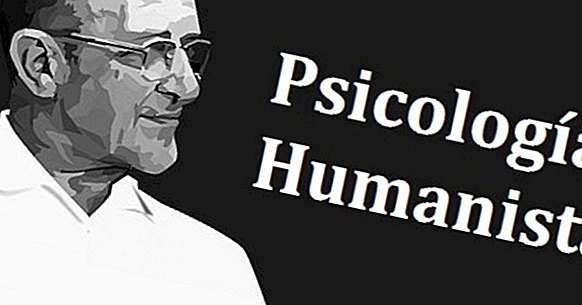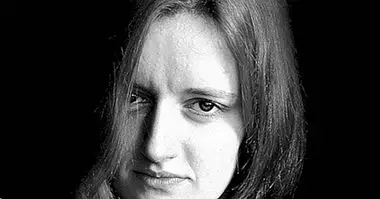Humanistic Psychology: history, theory and basic principles
Trying to delve into the different approaches within psychology, the Humanistic Psychology it is, in postmodernity, one of the rising currents. Today we discover its history and fundamental aspects.
Humanist Psychology: discovering a new paradigm
If you are an observer, You may have noticed that people have a tendency to complicate their lives asking us the why of things . I do not mean those aseptic "why" that doctors, engineers and programmers ask themselves, but that other version of the question that points to the total futility of their possible answers : "What does this picture suggest to me?", "Why am I the person I've become?", "What am I doing walking down the street?".
They are not questions whose answers are going to get us out of a hurry and, nevertheless, we use time and effort to try to answer them: a bad business from an economic perspective.
Should we understand, therefore, that this tendency towards the useless is an imperfection of our way of thinking? It probably is not.
In the end, this attachment to the transcendent has been accompanying us since time immemorial and we do not think it has gone wrong since then. In any case, maybe we should understand that the existential search is one of those characteristics that define us as human beings . Perhaps we should, if we want to better understand the logic by which our thinking is guided, look at the proposals of what we know today as Humanistic Psychology, a psychological current that does not renounce to understand all aspects of what makes us human.
What is Humanistic Psychology?
The first clues when placing Humanist Psychology on the map of psychological currents are found in one of its main standard bearers: Abraham Maslow (the creator of the Maslow Pyramid of human needs). In his book The Creative PersonalityMaslow speaks of three sciences or large isolated categories from which the human psyche is studied. One of them is the behavioral and objectivist current, which starts from the positivist paradigm of science .
In second place is what he calls "Freudian psychologies", which emphasize the role of the subconscious in explaining human behavior and, especially, psychopathology.
Finally, Maslow speaks of the current to which he subscribes: Humanist Psychology. This third current, however, has a peculiarity. The Humanist Psychology does not deny the two previous approaches, but covers them starting from another philosophy of science . Beyond being a series of methods through which to study and intervene on the human being, it has its reason for being in a way of understanding things, a singular philosophy . Specifically, this school is based on two philosophical movements: phenomenology and existentialism.

Phenomenology? Existentialism? What is that?
It is not easy to describe in a few lines two concepts on which so much has been written. First, and simplifying everything a bit, the conception of phenomenology can be addressed by explaining the idea of phenomenon In fact, the German philosopherMartin Heidegger he defines it as "that in which something can be made patent, visible in itself". For phenomenology, therefore, what we perceive as the real is the ultimate reality.
Phenomenology
From the phenomenology is highlighted the fact that we are never able to experience "reality itself" directly (since our senses act as a filter of this information), while the opposite occurs with those subjective aspects of which we are aware . That is, appeals to the intellectual and emotional experience as the legitimate sources of knowledge, a claim that also includes Humanistic Psychology.
Existentialism
On the other hand, existentialism is a philosophical current that proposes a reflection on human existence itself. Two of its postulates What most influence on Humanistic Psychology are the following:
- Human existence is reflexive thanks to the consciousness . From the consciousness arises the vital anguish of looking for a meaning to existence.
- The existence of the human being is changing and dynamic by its very nature, that is, it develops . Through the development of existence, concretized in its decision-making, it reaches the essence, which can be authentic or inauthentic depending on its congruence with the life project of the person.
In short, both phenomenology and existentialism put the emphasis on the consciousness and ability of man to decide, at all times, what to do, moved ultimately by his intentionality and not by his biology or environment, thus moving away from the innate and the environmentalism. Humanistic Psychology collects this heritage and guides it to study and intervention on decision making, the ability to create a consistent life project, human consciousness and reflection from this experience, which is partly subjective.
In addition, as this stream of psychologists assimilates ideas such as existential search , his speech usually refers to the "potentialities "of the human being, that is, those stages of its development that separate it from the state to which it aspires." The nature of this development is not biological, but rather more ineffable: it is a progression of subjective states in which the person constantly asks the question of what is happening to him, the meaning of what he is living, and what he can do to improve his situation.
Taking into account that "what is happening" is something totally private and out of reach of other people's eyes, it is understood that from a humanistic perspective this existential search is the responsibility of the subject who experiences it and that the psychologist has a secondary role as a facilitator of the process . Complicated, right? For this is the animal in search of meaning that Humanistic Psychology faces.
summarizing
So, Humanistic Psychology takes characteristics of existentialism and the phenomenology and proposes a study of the human being understanding it as a conscious, intentional being, in constant development and whose mental representations and subjective states are a valid source of knowledge about oneself.
A psychologist who subscribes to this current will most likely deny that the study of thought has to start from matter and experimentation alone, since this would imply an unabated dose of reductionism. Instead, it will surely emphasize the variability of human experiences and the importance of the social context in which we live. By bringing psychology closer to what has become known as social Sciences , we can say that Humanistic Psychology admits the connection between philosophy, moral theory, science and technology, and rejects the vision of science as something neutral away from any ideological or political positioning.
A manifesto
Humanistic Psychology can be understood as an inevitable fruit of the change of mentality that the 20th century supposed or, more specifically, a kind of psychology of postmodernity . Share with the postmodern philosophy the denial of a hegemonic discourse (the materialist approach typical of modern science) that seeks to explain all reality, or at least those areas of reality that are worth training experts.
The science heir to August Comte's positivism, say humanistic psychologists, it is useful to describe reality, but not to explain it . The human being, contrary to what happens with scientific instruments, experiences reality by providing meaning, creating fictions and narrative forms that order facts according to a series of beliefs and ideas, many of them difficult to express verbally and impossible to measure. Thus, a discipline that seeks to study the way of thinking and experiencing of the human being will have to adapt its methodology and its contents to this "meaningful" dimension of the human being Should, ultimately, study and provide content about the existential search that characterizes us.
Several limitations of the humanist model
From this "manifesto" of Humanistic Psychology their limitations are also born .
These psychologists face challenges that many other scientists renounce from the beginning: on the one hand, the need to combine knowledge about the measurable aspects of human psychology with subjective phenomena, and on the other, the difficult mission of creating a solid theoretical corpus at the same time that the claim of universality of its explanations is renounced. The latter is important, since our subjective experiences are characterized by being linked to the culture we inhabit, but also to a lot of variables that make us unique. Maybe that's why today it's practically impossible to talk about concrete models of the functioning of human thought supported by Humanistic Psychology.
Each author of this current presents its own contents differentiated according to the idiosyncrasy of his thought and the scope of which he is engaged and, in fact, it is difficult to know which psychologists fully embrace Humanistic Psychology and which are influenced only in part by it. While there are authors whose ideas are recurrent in the literature of other psychologists, such as with Abraham Maslow and Carl Rogers , the proposals of other authors are more "isolated" or are too specific to be extrapolated to other areas.
The art of complicating life
In short, if science is responsible for answering the question "how?" , the existential search that Humanistic Psychology faces is formed by a multitude of much more complicated questions: "why?" . Not giving up anything, in certain aspects, is tantamount to complicating one's life; it may be that this search for meaning is, in fact, a journey without return, but the prospect of wandering eternally through the wastelands of existential doubt does not seem to frighten us.
In fact, sometimes we will march through their imaginary routes although this may lead to more problems than benefits from a purely economic and rational perspective, and although Agripa's trilema watches us closely during this progression of questions and answers. That is why, however questionable its contents may be from a scientific point of view (and, in some cases, from one's own criteria), It is good to know of the existence of psychologists who have raised the need to complicate their lives as they do the people they intend to study and serve.
Maybe people assigned to Humanistic Psychology lack the endorsement that enjoys the cognitive-behavioral psychology or neurology. But, of course, you can not accuse them of starting from an advantageous situation.
Bibliographic references:
- Camino Roca, J. L. (2013). The Origins of Humanistic Psychology: Transactional Analysis in Psychotherapy and Education. Madrid: CCS.
- Heidegger, M. (1926). Being and Time. [Version of ARCIS University Philosophy School]. Recovered from //espanol.free-ebooks.net/ebook/Ser-y-el-Tiem ...
- Maslow, A. H. (1982). The Creative Personality. Barcelona: Kairós.



















